'Our shows can be as good as anything in Belfast'
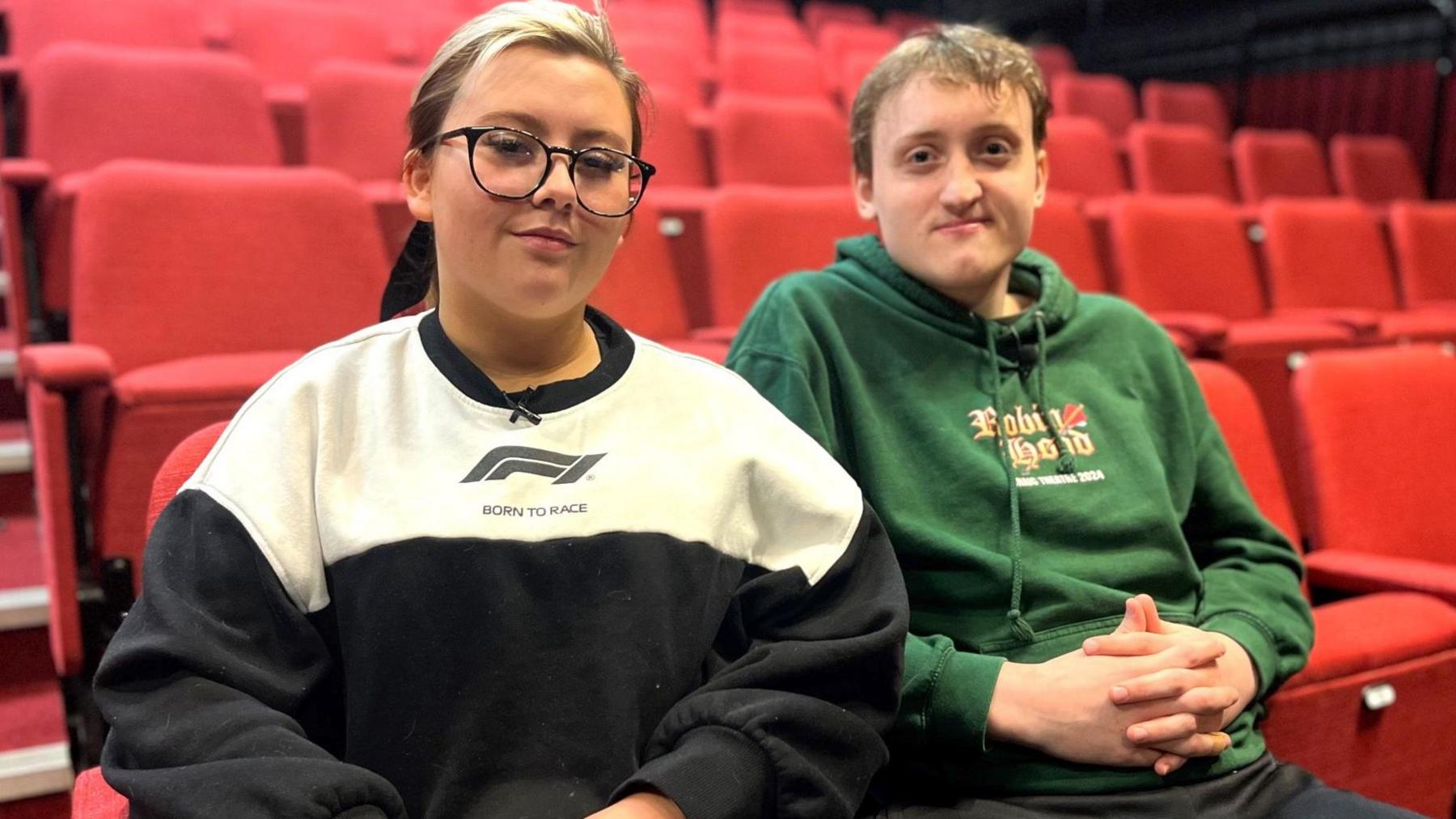
Cassie Donnelly and Astijus Jakubaitis are members of Craic Theatre in Coalisland
- Published
A group of young people who recently performed at Stormont are among those calling for more support for the arts in rural areas.
Performers from the Craic Theatre in Coalisland, County Tyrone, produced "Identity", which highlights the role of arts in empowering rural communities and improving mental well-being in isolated areas.
In 2023, arts organisations were told that their annual funding available from the Arts Council of Northern Ireland (ACNI) could be cut by 10%.
In recent years the largest share of funding from ACNI has gone to organisations based in Belfast and Londonderry.
ACNI said it did not fund on "place-based criteria" and that it offered a broad range of "fair, competitive funding schemes".
During the 2021-22 financial year, mid-UIster had the lowest number of groups funded.
But as part of its new 10-year strategy, ACNI acknowledged further investment was needed in under-represented groups such as rural artists.
'Theatre is my safe space'
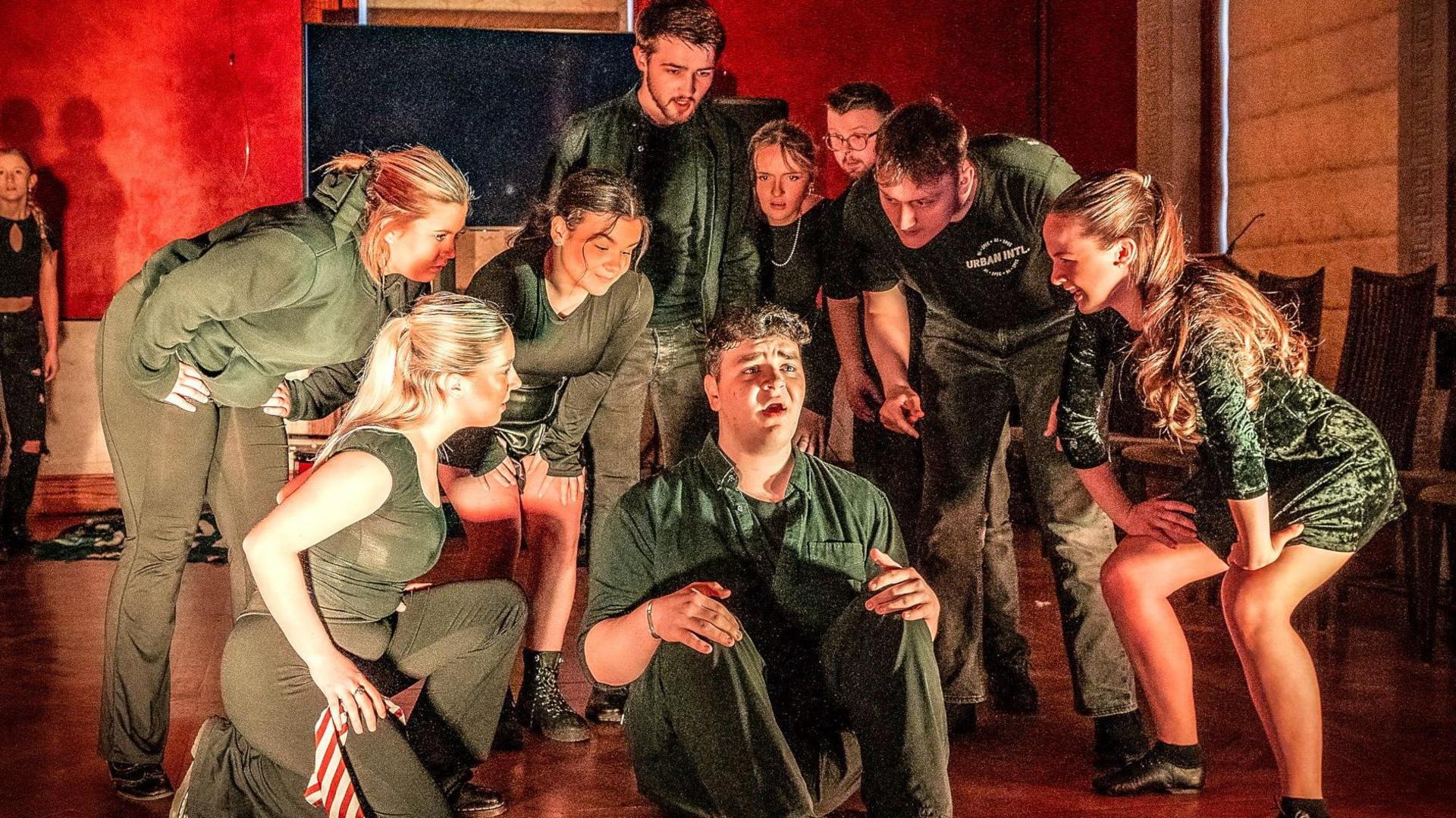
Young people from Craic Theatre produced and performed a played called 'Identity'
In 2022 it started the National Lottery Rural Engagement Arts Programme and has funded 19 organisations from mid Ulster, including Craic Theatre’s Identity project.
Teenager Dylan Fox is one of the young performers who helped write and perform the play.
“The piece really just boils down to how the arts in rural areas are under-funded and under-appreciated," he said.
“I’m from a rural area and theatre means so much to me, this is my home, this is my safe space.”
Sean O’Neill, who is a facilitator at Craic Theatre, helped the young people develop the production.
“To be honest, there was nothing in this piece that hasn’t come from their minds, we were just guides,” he said.
“The young people wanted to look at protest theatre because of all the talks of arts cuts and they devised and created a really cool piece.”
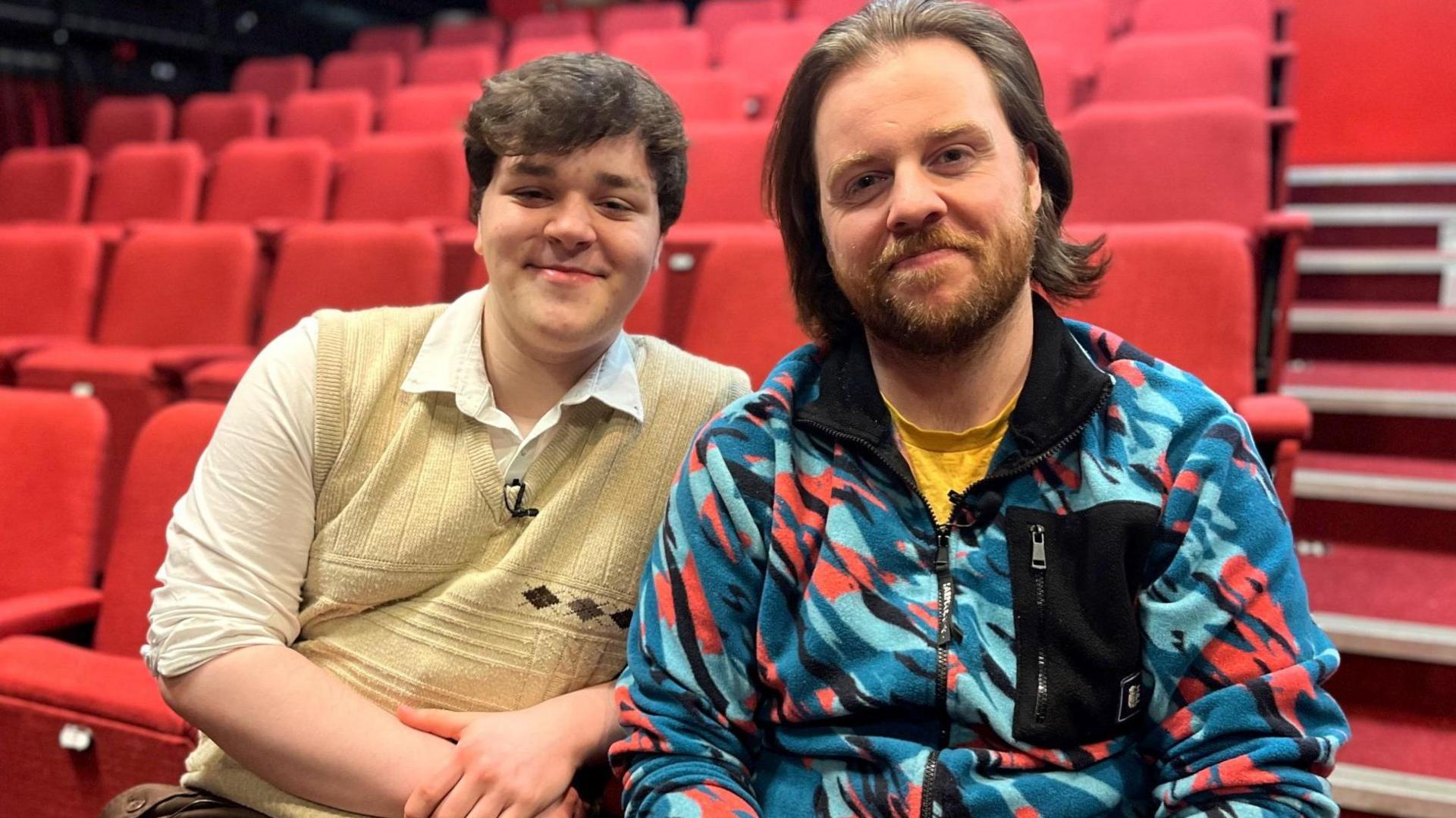
Dylan Fox is one of the young performers and Sean O’Neill is a facilitator at Craic Theatre
Cassie Donnelly is 16 and from Dungannon.
“Nobody really thinks of mid-Ulster as a place with big theatres and things like that, which can be annoying as what we do have isn’t always appreciated," she said.
“And that’s what this project was about, showing that our productions are amazing and can be just as good as what’s on at places like the Grand Opera House in Belfast.”
At the beginning of May the young performers took their play to Stormont.

Craic Theatre took their performance to Stormont in May
Guests included Minister for Communities Gordon Lyons and a number of assembly members and councillors.
Astijus Jakubaitis is originally from Lithuana but now lives in Dungannon.
The 18-year-old took part in the Stormont performance.
“Obviously I’m not originally from here, so I’m not always sure how the politics work, but I knew that going to Stormont was a big deal," he said.
“I just really hope we got the message across about how important the arts are to this area.”
Like father, like son
From the young people starting off to those who have been treading the boards for decades - a love for the arts in mid-Ulster is nothing new.
Killyman actor Frank Fee has been performing in locally produced plays for almost 50 years.
“There’s no such thing as a retired actor, you just sort of fall off the stage, and it’s fair to say I’m nearly at the edge of the stage”, he joked.
The Tyrone native spent much of his career acting in Donaghmore’s Bardic Theatre, which has been putting on productions for rural audiences for more than 40 years.
Most recently he took on the role of Uncle Pat in the Jez Butterworth play The Ferryman.
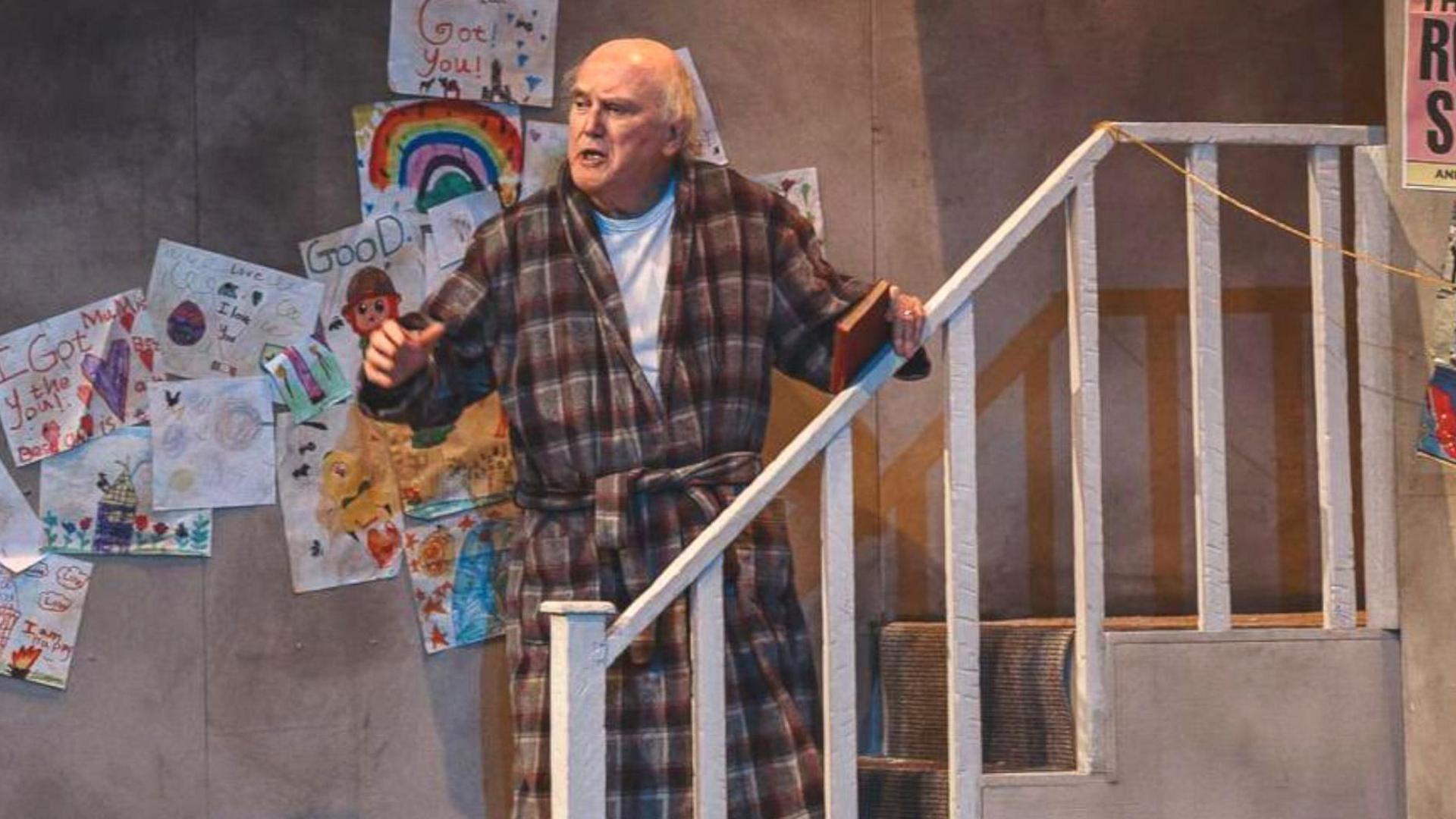
Frank Fee recently took on the role of Uncle Pat in the Bardic Theatre's production of The Ferryman
Set in Northern Ireland in 1981, it tells the story of a former IRA member who must face his past when his brother’s remains are unearthed.
The Bardic Theatre’s version of the play was the Irish premiere of the production.
Frank’s son is actor Fra Fee, who has been seen in big budget movie productions such as Netflix’s Rebel Moon and Marvel’s Hawkeye series.
But one of his breakthrough roles was in the West End production of The Ferryman.
He watched his father perform in the same play during a run at Belfast’s Lyric Theatre earlier in 2024.
“When I told Fra I was playing uncle Pat in the Ferryman, he just laughed and said ‘sure you basically are Uncle Pat anyway'," Frank said.
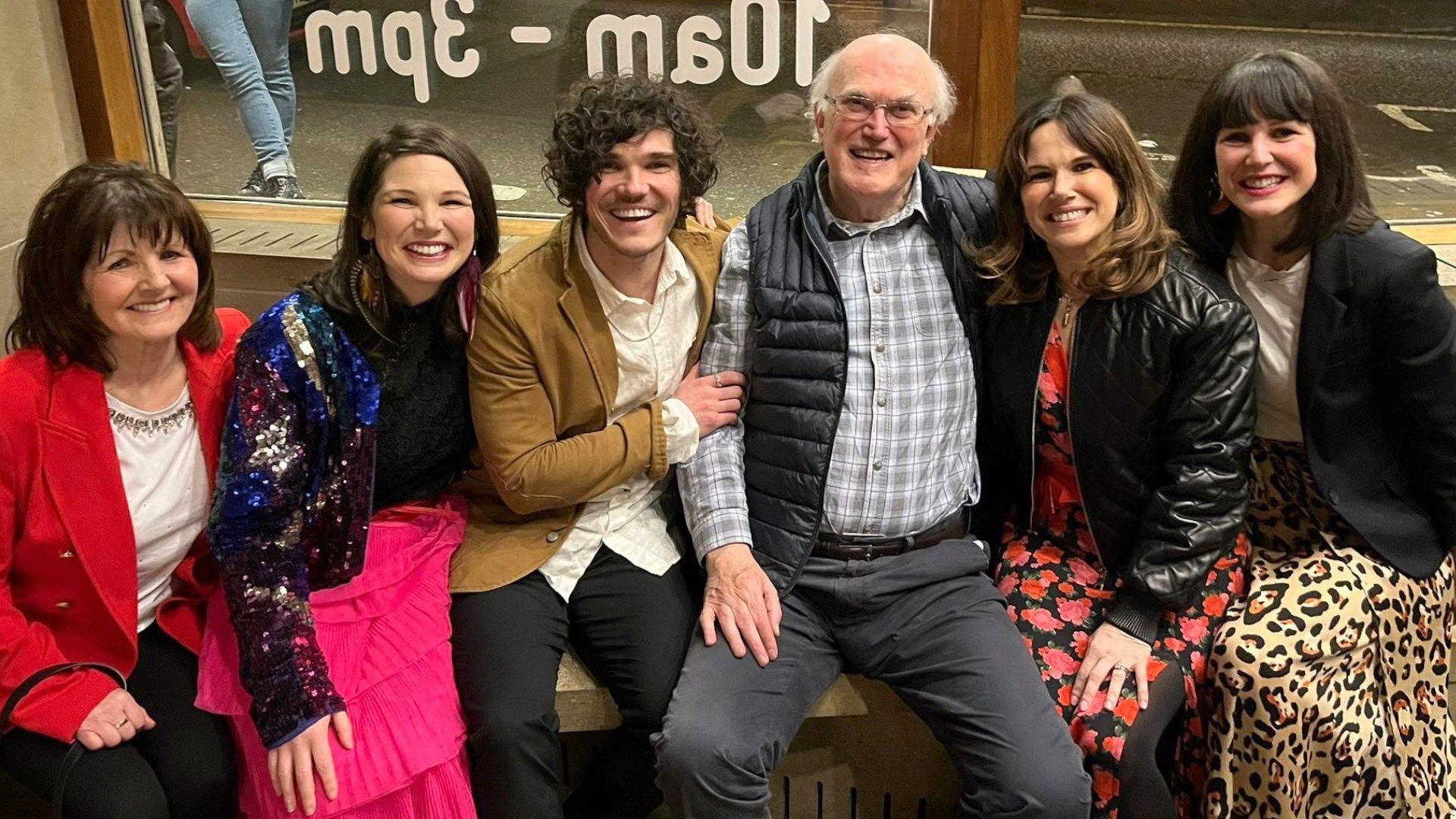
Frank was joined by his family after his last performance in The Ferryman
"We’ve always felt deprived or looked over in rural areas, it’s the same with industry and things like that, so we’re no different in the arts," he said.
Mary MacGinty, a drama teacher from County Tyrone, recently gave a lecture about the history of the arts in Dungannon and surrounding areas
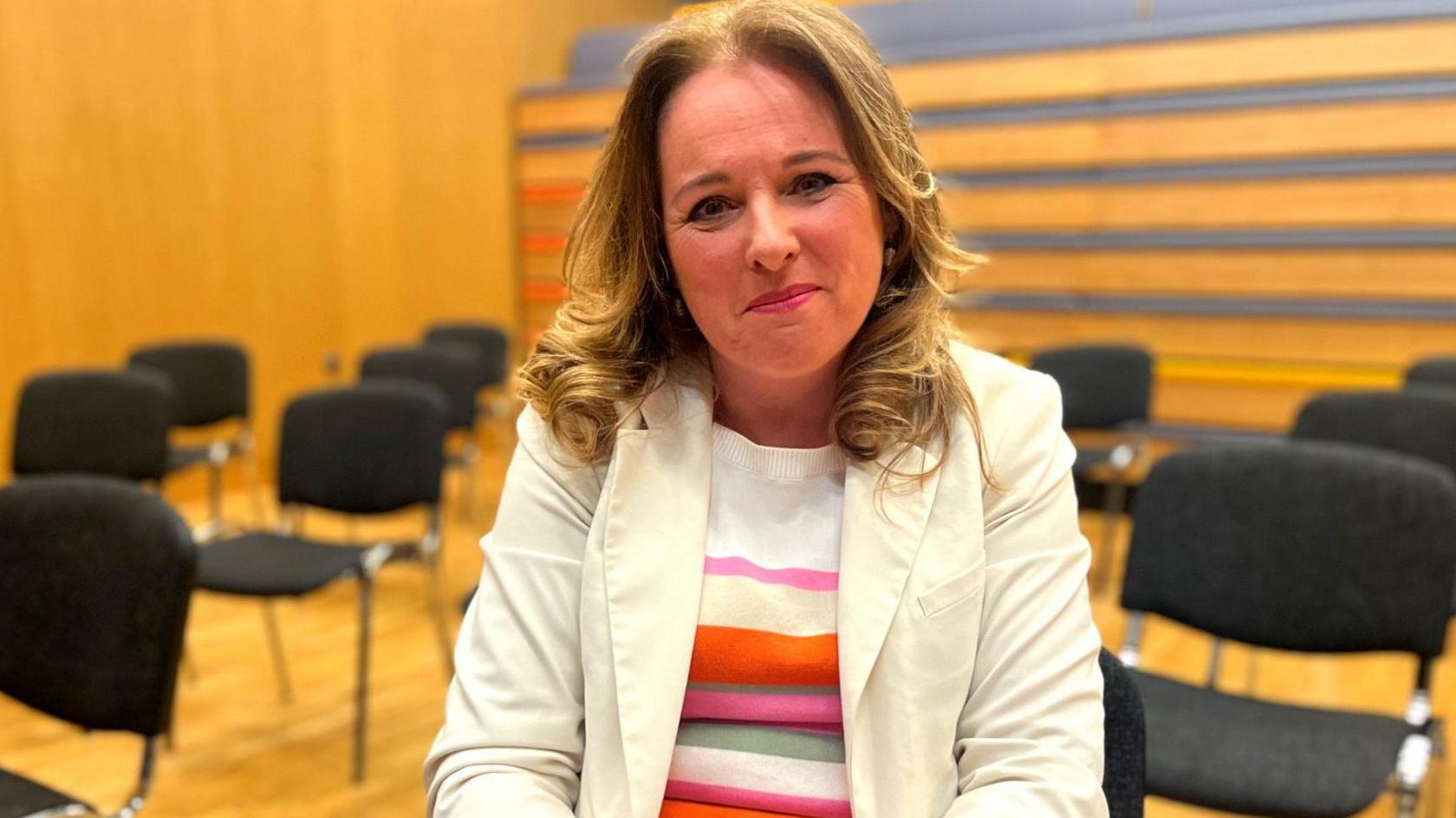
Mary MacGinty recently gave a talk on the history of the art scene in mid-Ulster
"The drama groups in this area are helping with everything from health and well-being to cross-community relationships," she said.
“A lot of this is volunteer-driven, but these places have heating and oil, and funding might come in from year to year, but that makes it very hard to plan.”
Since 2022, ACNI's National Lottery Rural Engagement Arts Programme has supported 135 arts projects in rural areas across Northern Ireland.
A spokesperson added: "We recognise that arts investment in NI (from multiple agencies, including local authorities) often gravitates towards urban areas due to a higher concentration of artists and organisations that apply for available grants and resources.
"We have strategically tried to address this imbalance through the implementation of targeted programmes aimed at supporting and promoting arts in rural communities."
A spokesperson for Mid Ulster Council said councillors had invited ACNI to discuss its 10-year strategy and the "re-balancing of arts investment in under-represented areas".
Related topics
- Published7 April 2023
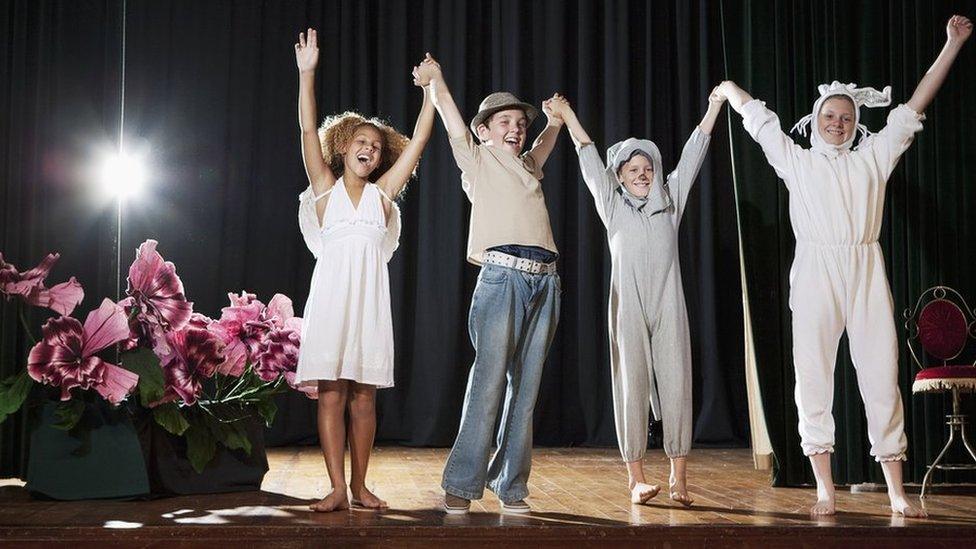
- Published25 April 2023

- Published10 December 2022
